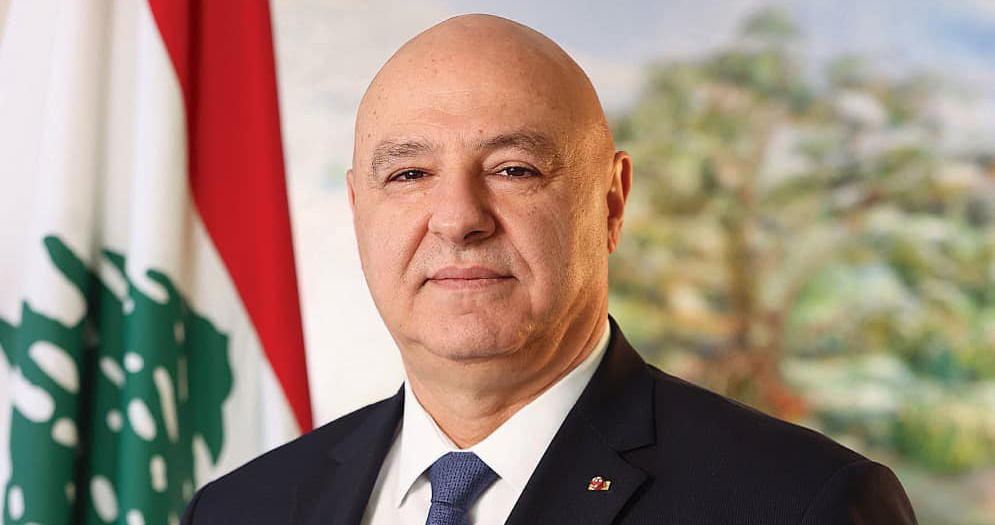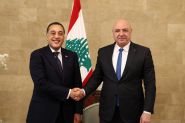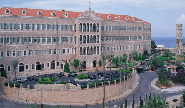
President Joseph Aoun stressed that the decision to collect illegal weapons was “irreversible.”
The Lebanese Presidency announced on its X account that President Joseph Aoun will travel on Wednesday to the United Arab Emirates for a two-day official visit at the request of Sheikh Mohammed bin Zayed Al Nahyan, President of the UAE and Emir of Abu Dhabi.
According to the statement, Aoun will hold talks with Sheikh Al Nahyan and other senior Emirati officials during his visit.
Before departing, Aoun will receive General Jasper Jeffers at the Presidential Palace in Baabda. Jeffers chairs the international committee monitoring the ceasefire between Israel and Hezbollah.
Their discussions will focus on the situation in southern Lebanon, as well as Israeli violations of the ceasefire and Lebanese detainees held in Israel.
On the eve of General Jeffers’ arrival, President Aoun commented on the situation in southern Lebanon during a meeting with a delegation from the Middle East Institute (MEI), led by retired US General Joseph Votel.
He outlined the measures taken by the Lebanese Army to deploy south of the Litani River, in line with United Nations Security Council Resolution 1701.
However, Aoun criticized Israel’s continued presence on five border hilltops, claiming that while these areas hold no strategic importance, they prevent the army from fully deploying to the border.
“Israel should have withdrawn from these positions on February 18, in accordance with the November 27 ceasefire agreement. Despite our repeated appeals to the sponsors of this agreement—the United States and France—no action has been taken,” he lamented.
He once again called on Washington to pressure Israel to withdraw from these positions and to release Lebanese prisoners so the army can fully carry out its mission in cooperation with UNIFIL and thereby extend the state’s sovereignty across the entire southern territory.
No Security Disruption
President Aoun also stressed that the decision to give sole authority over arms possession to the state is “irreversible.”
“This direction enjoys broad support both from Lebanon and from friendly and allied nations,” he emphasized, adding that “removing illegal weapons will not lead to security unrest.”
This process, according to Aoun, would be conducted through dialogue with the concerned parties, who also value stability, peace and the role of the central state.
He noted that the current regional context favors peaceful solutions, “even if their implementation requires time to prevent any escalation.”
In this context, the president also highlighted the urgent need for increased support for the army and security forces. “Military units need rapid assistance to continue fulfilling their role in maintaining order and stability,” he said.
According to Aoun, “It is in the interest of the United States to see Lebanon remain stable and secure. They must help achieve this.”
‘No Longer Possible to Host Refugees’
The president also addressed the issue of displaced and migrant Syrians, asserting that Lebanon “can no longer accommodate them.” He said that the majority of Syrian refugees are now able to return home, as “the political and security conditions that once justified their continued stay have largely changed.”
He added that lifting economic sanctions on Damascus would help revive the Syrian economy and create favorable conditions for the refugees’ return.
Finally, the head of state reaffirmed Lebanon’s commitment to continuing economic, financial and administrative reforms. He emphasized the fight against corruption, calling it “a priority being pursued in collaboration with the government and parliament.”



Comments